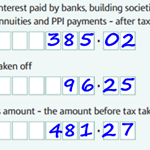People often ask what happens to their credit score if they make a complaint. And what happens if they still owe a balance on the account. Here are some typical questions: " Lloyds increased my overdraft limit several times a few years ago when I had a gambling problem. But I have recovered and am hoping to get a mortgage soon. I don't want to complain if it will it harm my credit score, which is … [Read more...]
Affordability refunds
These articles cover affordability complaints for different sorts of borrowing.
The regulator says that a loan is "unaffordable" if you couldn't make the repayments and pay your bills, other debts and normal living costs without borrowing more eg using more of a credit card limit.
So even if you always paid your loans on time, they could still have been unaffordable if paying them made your finances worse.
For credit cards and overdrafts there are slightly different criteria, and so there are different template letters.
Complain by email: see this list of bank and credit card email addresses.
How to get refunds from catalogues and credit cards
Have you had a credit card, store card or catalogue where your credit limit was too high? So high that the monthly repayments were hard to manage and you got into more debt? For some people the limit was too high at the start. Others were originally given an OK limit, but the lender kept increasing it. or it was OK while the 0% offer lasted, then unmanageable. You may have a good … [Read more...]
Affordability refunds from large loans and car finance
The repayments on many loans and car finance are too high to be manageable so people get deeper into debt trying to repay them. When you applied, a lender should have checked a loan would be affordable for you - often they did not check properly and you should never have been given this loan. This article describes how to complain, with a template to use. Many people have won complaints … [Read more...]
Problem overdraft? How to ask your bank for a refund of interest
Have you had big overdraft problems for a long period? You can make an affordability complaint and ask for a refund of overdraft charges if: your overdraft limit was set too high at the start or increased to a level you are unable to clear; or your overdraft usage showed you were in long-term financial distress. For example, being in the overdraft all the time, or using an unauthorised … [Read more...]
How to get a payday loan refund
Have you had problems with payday loans? You can get a refund of the interest you paid on "unaffordable" loans. It’s easy to ask for a payday loan refund using the free template here. This works if your payday loans were repaid or you still owe money. What are “unaffordable” loans? The regulator says: “the borrower should be able to make the required repayments without undue difficulty, … [Read more...]
Were you sold a car on unaffordable finance?
Was your car finance unaffordable? The FCA, who regulates car finance lenders. and the Financial Ombudsman (FOS) say: a loan is only affordable if you can make the repayments on time, without hardship and still meeting your other commitments. That means you need to be able to pay all your other debts, your normal household bills and expenses as well as the new car loan payments. You may … [Read more...]
Gambling – get refunds from loans, credit cards & overdrafts
Many people with a gambling problem have been given unaffordable credit. This fueled their gambling and they got deeper into debt. Credit is affordable if you can repay it and still pay your other debts, bills and expenses. If it is unaffordable, then you can ask for a refund of interest and charges and take a complaint the lender declines to the Financial Ombudsman (FOS). But gambling … [Read more...]
If a lender took tax off a refund, reclaim some using the R40 form
If you have received a refund from a lender, you may see that there is an "8%" element included. This applies in many situations, including PPI, affordability refunds and NOSIA refunds. Often the lender will have deducted basic rate tax from this 8% part. Since April 2016 non taxpayers and basic rate taxpayers can probably get some or all of this back from the HMRC. This article looks at … [Read more...]







